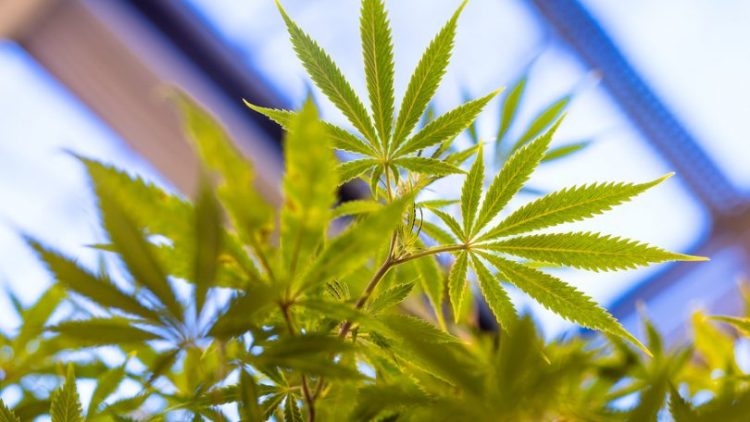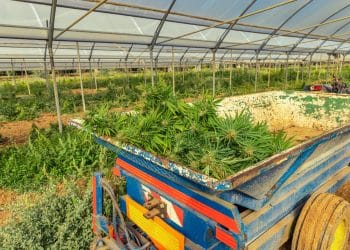Today, the New Jersey state legislature delayed a key cannabis vote, possibly until November.
NORML Political Associate Tyler McFadden said,
“Voters and lawmakers both agree that the practice of treating cannabis consumers as second-class citizens must end. Unfortunately, legislative intransigence regarding how best to create a regulatory framework has resulted in, at least for now, a continuation of the failed policy of cannabis criminalization in the Garden State.”
She added: “Criminalization is a policy that results in over 35,000 cannabis-related arrests annually in New Jersey — mostly for low-level cannabis possession. These arrests do not promote public safety, cost taxpayers millions of dollars, and disproportionately impact the poor and communities of color. It is pivotal that leadership continues to move forward to address and enact needed cannabis law reforms in New Jersey, including efforts to expunge past low-level cannabis convictions.
“Finally, it should be acknowledged that, to date, no state has taken legislative action to regulate the adult use cannabis market. In every jurisdiction where regulations exist, they were enacted by a direct vote of the citizenry. Based on current polling in New Jersey, we have little doubt that, if provided the opportunity, Garden State voters would take similar action.”
Senate President Steve Sweeney said:
“While we are all disappointed that we did not secure enough votes to ensure legislative approval of the adult use cannabis bill today, we made substantial progress on a plan that would make significant changes in social policy.
“Governor Murphy has shown real leadership in driving this issue. He worked with Speak Coughlin, with me, and with the bill’s sponsors and social justice advocates in a shared commitment to change failed drug laws and reform the criminal justice system.
“This fight is not over. We need to learn from this experience and continue to move forward.
“While this legislation is not advancing today, I remain committed to its passage. The Senate was very close to 21 votes and, with more education and advocacy; I believe we will get this legislation across the finish line.”
According to a February 2019 Monmouth University poll, 62 percent of New Jersey adults support legalizing the possession of small amounts of cannabis for personal use, and 68 percent believe that legalizing cannabis would boost the state’s economy.
According to the most recent FBI Uniform Crime Report, police made 659,700 arrests for cannabis-related violations in 2017. That total is more than 21 percent higher than the total number of persons arrests for the commission of violent crimes (518,617) in 2017. Of those arrested for cannabis crimes, just under 91 percent (599,000) were arrested for cannabis possession offenses, a slight increase over last year’s annual totals. Total cannabis arrests in 2017 increased for the second straight year, after having fallen for nearly a decade.
Thirty-three states, Washington, D.C. and the U.S. territories of Guam and Puerto Rico have enacted legislation specific to the physician-authorized use of cannabis. Moreover, an estimated 73 million Americans now reside in the ten states where anyone over the age of 21 may possess cannabis legally. An additional fifteen states have passed laws specific to the possession of cannabidiol (CBD) oil for therapeutic purposes.
Sixty-eight percent of registered voters “support the legalization of cannabis,” according to 2018 national polling data compiled by the Center for American Progress. The percentage is the highest level of support for legalization ever reported in a nationwide, scientific poll.
Majorities of Democrats (77 percent), Independents (62 percent), and Republicans (57 percent) back legalization. The results of a 2017 nationwide Gallup poll similarly found majority support among all three groups.
To date, these statewide regulatory programs are operating largely as voters and politicians intended. The enactment of these policies have not negatively impacted workplace safety, crime rates, traffic safety, or youth use patterns. They have stimulated economic development and created hundreds of millions of dollars in new tax revenue.
Specifically, a 2019 report estimates that over 211,000 Americans are now working full-time in the cannabis industry. Tax revenues from states like Colorado, Oregon, and Washington now exceed initial projections. Further, numerous studies have identified an association between cannabis access and lower rates of opioid use, abuse, hospitalizations, and mortality.
NORML’s mission is to move public opinion sufficiently to legalize the responsible use of cannabis by adults, and to serve as an advocate for consumers to assure they have access to high-quality cannabis that is safe, convenient, and affordable.
Find out more at www.norml.org and read our factsheets on the most common misconceptions and myths regarding reform efforts around the country at www.norml.org/cannabis/fact-sheets













